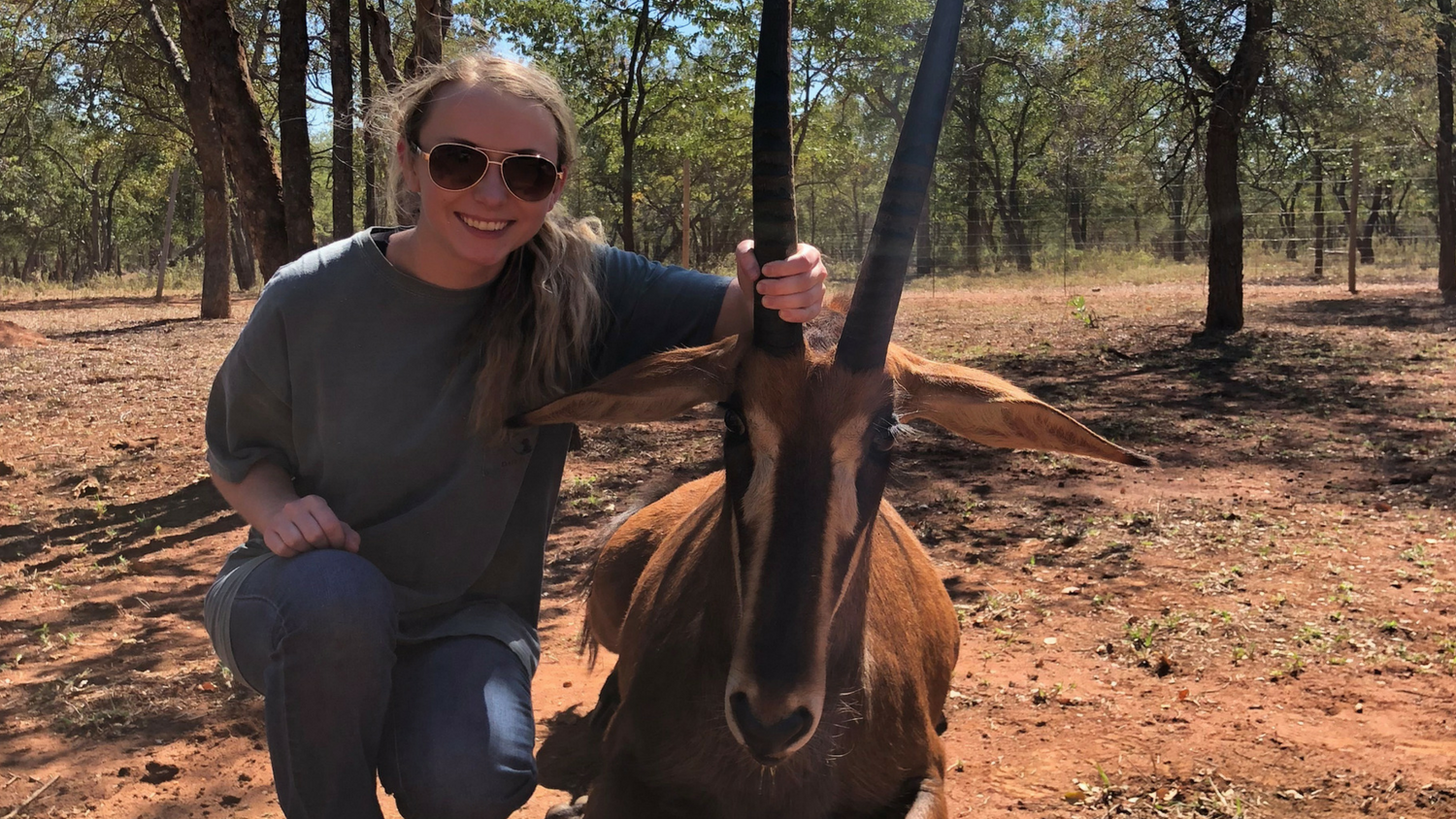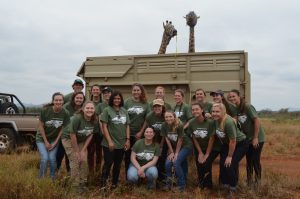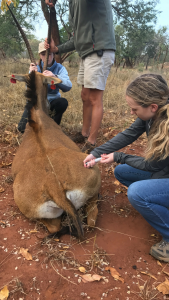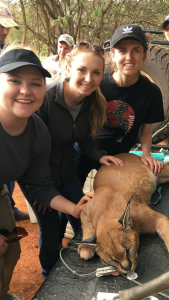Meet Emily Wiloch

Program and Location:
South Africa: Wildlife Management and Conservation; Kruger National Park, South Africa
Why did you choose to study abroad?
I chose to study abroad to gain experiences and knowledge that I would not be able to obtain in the classroom. I wanted to study abroad in South Africa due to their abundance of wildlife and how important it is to their economy. For them, farming rhinos and antelope is equivalent to farming cattle and hogs in America. These animals bring in a lot of income through trophy hunting while also playing a key role in conservation. I also wanted to experience a culture that was very different from American culture in order to gain insight into different thinking methods and communication techniques. Finally, I chose this program because I want to attend veterinary school in the future. This course allowed me to learn how to perform medical treatments for precious wildlife species, such as giraffes, rhinos, impala, sable, and buffalo.

What did you learn about yourself?
During my time in South Africa, my passion for veterinary medicine was reaffirmed. I learned that my true passion for helping animals stems from the desire to help people. By keeping the animals on the game reserve healthy, it allows the owners of the farm to have a good life and steady income. Additionally, we did an outreach day in a low income neighborhood and provided veterinary care to their dogs for no charge. It was an amazing feeling to see how grateful these people were that we were helping them for free. They really do care about their animals, but some people just cannot afford basic and routine veterinary care.

What was one of your favorite parts of your program?
It’s hard to pick a favorite part about this program, but one specific day does stick out to me. On this course, we would have either a veterinary day working in the field alongside a veterinarian, or we would go on an excursion. On one of our vet days, we went to a farm to work on 8 roan, which is a type of antelope. We trans-located them, administered antibiotics to prevent any infections from the dart wound, and gave a de-wormer and vitamin supplement. We also got to ear tag the roan for identification purposes, as well as microchip them. Finally, we got to collect hair and draw blood for DNA testing. All of us got the opportunity to do each of these things on one of the roan. It was amazing to be able to do so many different hands-on tasks to these beautiful animals. We would have never gotten an opportunity like that in America.
What advice do you have to future study abroad students?
I would recommend everybody to study abroad, even if it is just for a few weeks. I am somebody that could probably not study abroad for a whole semester because I would miss my family, so this 2.5 week long program was perfect for me. This was honestly a life changing experience and I would do it all over again if I could. My best piece of advice is to keep an open mind about the country’s culture, because things will probably be really different. They will have different diets, languages, and political views than you will. While this may be out of your comfort zone, it is important to immerse yourself in the culture and learn about their lifestyle as much as possible. It really opens your mind to thinking in a diverse perspective, which allows you to grow as a person.

How did your study abroad experience prepare you for your future career?
This program was tailored for pre-veterinary students, which is perfect for me. I plan to go to veterinary school after graduation from NCSU. This program allowed me to perform so many different medical treatments on animals, which obviously helps me get hands on experience for vet school. I also got to learn about behaviors of animals, which is very important in veterinary medicine. It’s crucial that animals are as comfortable as possible and that everybody in the area is as safe as possible. Finally, I got the chance to talk to the veterinarian each night about dosages, medications, treatments, and diseases. This is all valuable information that will better prepare me for my future career.
Would you do it again?
Yes! I would go back to South Africa again this year if I had the opportunity!
- Categories: